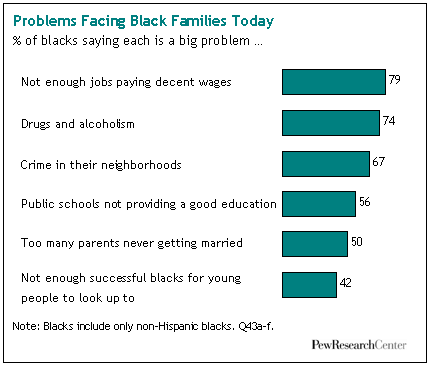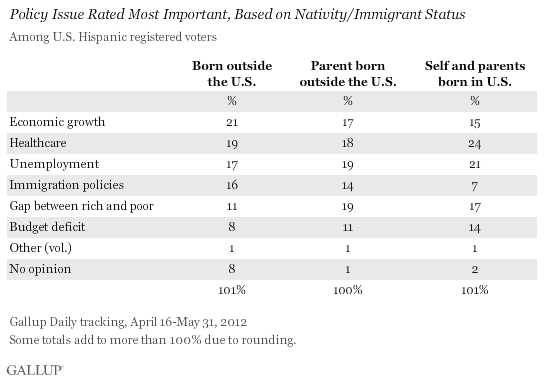Whether it’s a constant striving for novel analysis or sheer ignorance, there exists a sizable contingent on the left — usually white — that have very bizarre views of what primarily troubles people of color. To be sure, all classes of people have numerous troubles, and it’s useful to talk about all of them. But not all troubles are equally significant to the people who face them. One very useful way of figuring out what issues are the most important to a group of people is, I hypothesize, to ask a bunch of them. We call this polling.
When it comes to polling data from people of color, the message is quite clear: economic issues dominate all others. In 2010, Pew did a massive survey of blacks in the United States asking, among other things what are the big problems facing black families today. Nearly 4 in 5 blacks responded that there were not enough jobs paying decent wages:

In a considerably different survey, hispanic voters were asked to rate the single policy issue that was most important to them. This was the result.

This survey was primarily aimed at seeing whether immigration was the biggest issue for hispanics — as many seem to think — so it is important to note that limitation. Nonetheless, notice that even among hispanics born outside the United States, personal economic issues dominate immigration as policy priorities, with 68% selecting either economic growth, unemployment, healthcare, or the gap between the rich and the poor as their most important issue.
I am not saying these are perfect polls, but they do seem to get at a basic truth: the most serious and widespread oppression faced by marginalized groups whether they be women, people of color, or any others comes in the form of economic deprivation. That is not to say such oppression is necessarily motivated by the class politics of the rich: it is just to say that economic deprivation is the primary channel that the oppression works through. Thus, economic issues should be, if not on the forefront in the minds of racial justice advocates, very close to it. Failing to treat economic issues that way alienates your advocacy from the actual experiences and self-reported concerns of the very people you are advocating on behalf of.